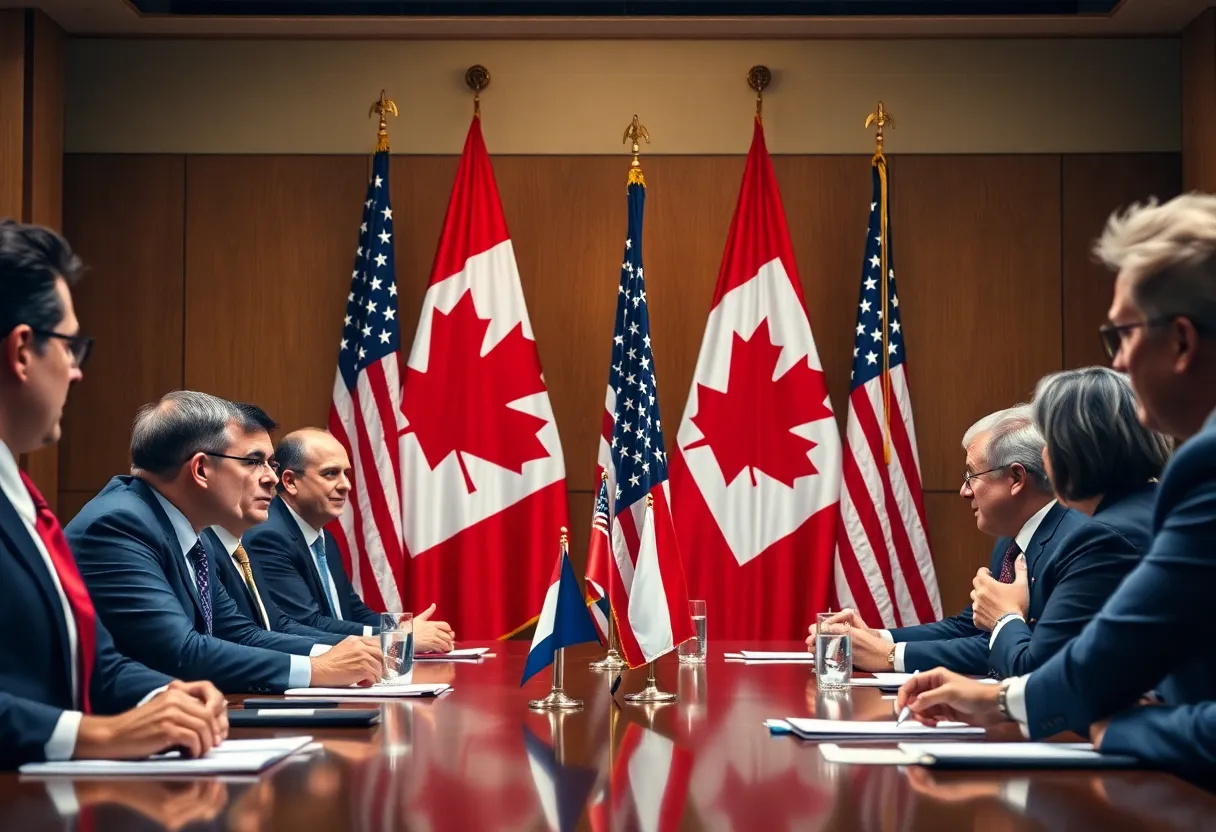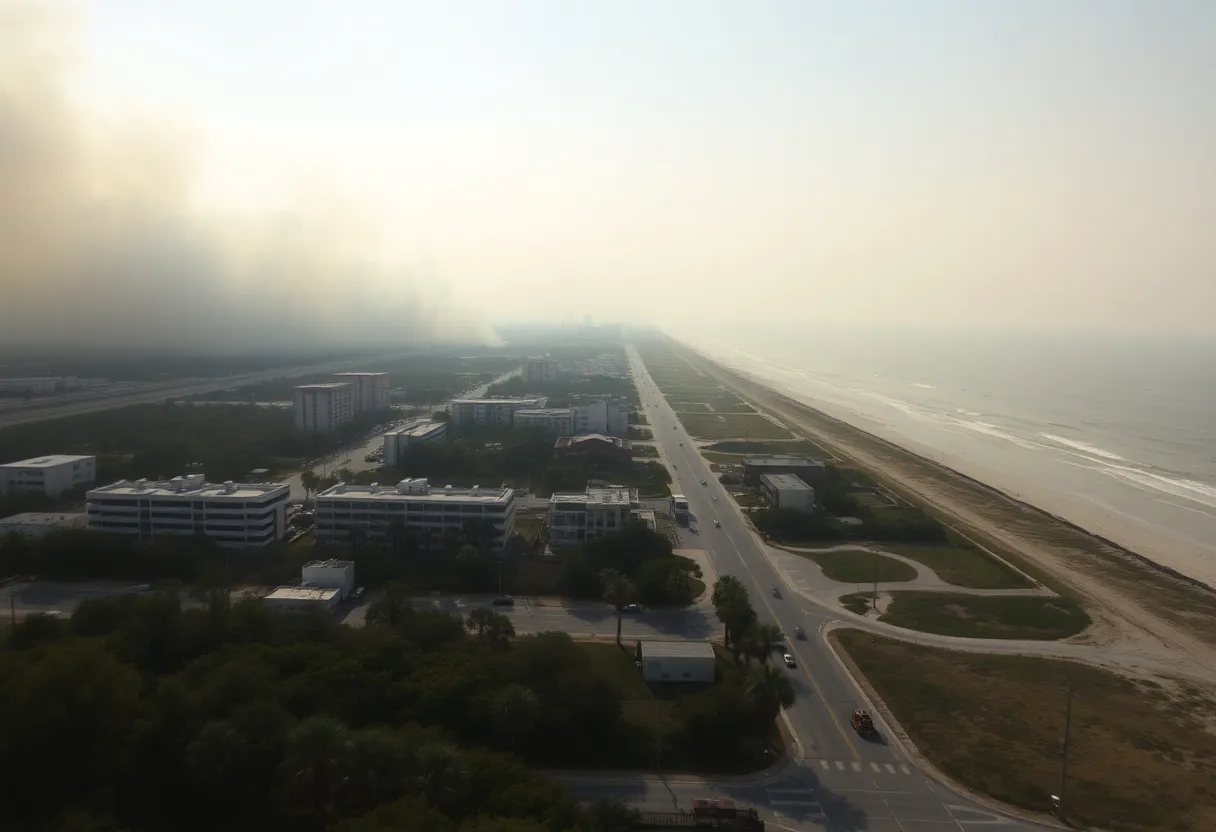News Summary
Canadian Prime Minister Justin Trudeau has expressed serious concerns over former US President Donald Trump’s remarks about potentially annexing Canada as the ‘51st state.’ During a meeting at the Canada-US Economic Summit, Trudeau highlighted the risks associated with Trump’s interest in Canada’s critical mineral resources. The conversation comes amidst Trump’s threats of tariffs on Canadian imports, leading to unease among Canadians about their sovereignty and economic future. Federal ministers have reiterated Canada’s independence amidst rising national pride fueled by external threats.
Trudeau Voices Concerns About Trump’s Annexation Remarks
The political scene is heating up as Canada’s outgoing Prime Minister Justin Trudeau has raised some eyebrows with his recent comments about the former US President Donald Trump’s overt interest in combining the two nations. Yes, you read that right—Trudeau warned that Trump has been considering the idea of Canada becoming the “51st state.” And no, this is not just some whimsical joke floating around; according to Trudeau, this is a legitimate concern and discussion.
A Serious Conversation Over Key Resources
During a closed-door meeting at the Canada-US Economic Summit in Toronto, which saw over 100 business leaders and public policy experts in attendance, Trudeau brought attention to this serious matter. His comments came amidst concerns about Trump’s *threatening* talk of imposing a *25% tariff* on all Canadian imports. Fortunately, Trump has paused the implementation of these tariffs for a mere 30-day negotiation period. But let’s just say, tensions are in the air.
What’s Behind the Interest?
So, what’s driving this surprising interest from Trump? Well, it appears to center around Canada’s *abundant critical mineral resources*. These include essential elements like lithium, graphite, nickel, copper, and cobalt—minerals largely considered crucial for the thriving green energy sector. It’s clear that Trump sees the immense value in these resources, which may have contributed to his thoughts on *annexation.*
Terminology Matters
And if you think this annexation talk is just playful banter, think again. Trudeau mentioned that during discussions, Trump referred to him as a “governor” instead of a prime minister. This shift in terminology doesn’t sit well with Canadian leaders, underscoring the potential challenges to Canada’s sovereignty.
Government Reassurances and Poll Numbers
In response to these alarming conversations, Canadian officials have quickly sought to reassure the public about the nation’s independence. Industry Minister François-Philippe Champagne, along with Trade Minister Anita Anand, made it clear that there wouldn’t be “any messing” with the border and emphasized Canada’s sovereignty. According to an Ipsos poll conducted in January, around 80% of Canadians are not on board with the idea of joining the US, and they intend to keep it that way.
Historical Context
Interestingly, Trump first floated the idea of annexation during a dinner with Trudeau back in December 2022, and it was largely dismissed as a joke at the time. But with Trudeau’s recent remarks, it seems the perception of these comments has significantly shifted. Trump’s social media jabs at Canada’s sovereignty have not helped alleviate concerns, with him reiterating the notion of Canada as the “51st state” multiple times.
The Economic Scenario
Let’s not forget the economic implications of these potential tariffs, as approximately three-quarters of Canadian exports make their way to the US. This heavy reliance makes Canada’s economy particularly vulnerable to these threats, stirring up fear among citizens. In fact, many Canadians have opted for local spending as a way to protest against the unpredictability of US tariffs.
Shifts in Political Sentiment
Political sentiments, especially in Quebec, have also experienced a notable shift. There’s a growing sense of pride in Canadian identity fueled by the perception of external threats. Federal cabinet ministers have hammered home that Canada’s relationship with the US is essential for both economic and national security. The apprehension surrounding Trump’s remarks, coupled with the looming tariffs, highlights Canada’s delicate position in the North American political landscape.
Conclusion
As it stands, the impending economic negotiations and the ongoing chatter about annexation have taken center stage in Canada. With such strong opposition from Canadian citizens and a steadfast commitment to protecting national sovereignty, it’s clear that the road ahead will be challenging and filled with discussions that may shape the future of the Canadian-American relationship.
Deeper Dive: News & Info About This Topic
- Reuters
- Wikipedia: Canada–United States relations
- BBC News
- Google Search: Canada US relations
- New York Times
- Encyclopedia Britannica: Canada-United States relations
- The Guardian
- NewsBytes
- ForexLive







